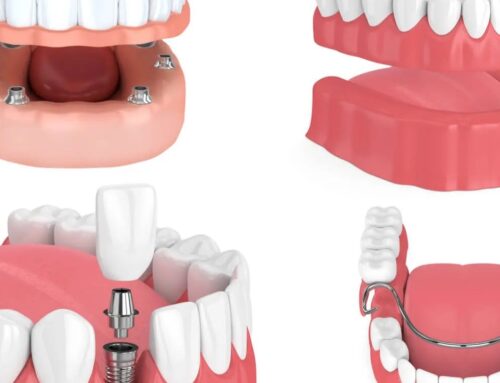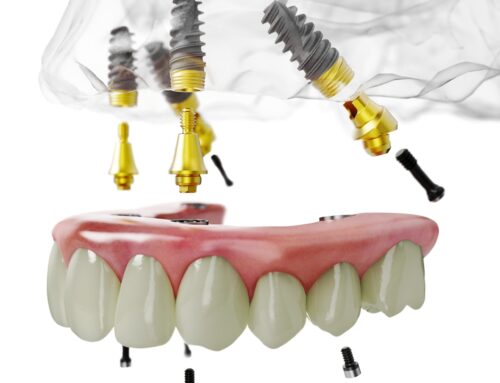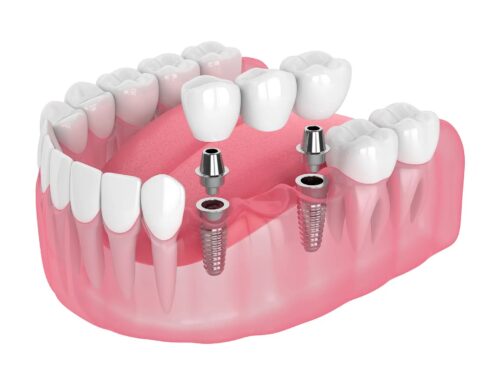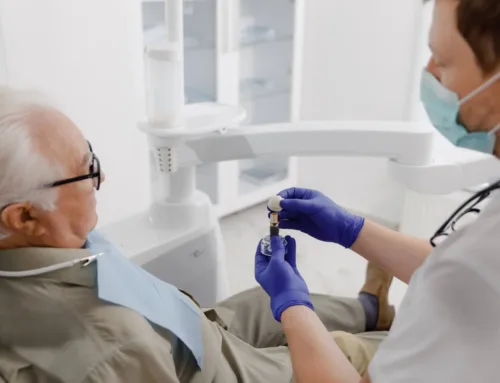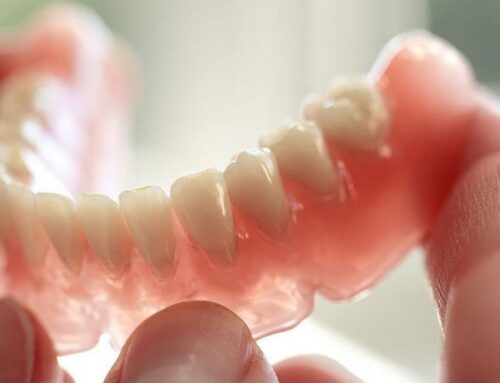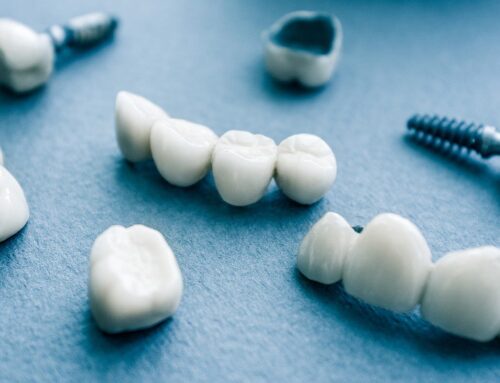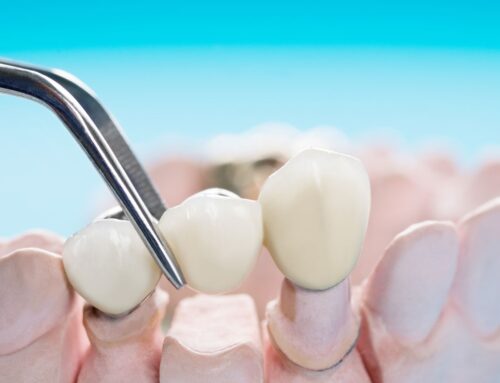What Young Adults Need To Know About Dental Implants
Even a single lost tooth can cause long-term dental health problems and other issues that can have negative effects on our overall state of well-being, so it’s important that lost or missing teeth are treated promptly and properly. In most cases, the best solution will be to use a dental implant to replace the lost tooth.
As we grow up from childhood into young adults and there are no longer any baby teeth left to lose, the idea of a lost or missing tooth is not generally something we tend to think about very often. Even then, the images that would pop into the mind of someone thinking about an adult missing a tooth might be primarily of the elderly, or perhaps the stereotypical smiles of some pro hockey players. The reality is that there are many young adults who find themselves in situations where a tooth becomes lost, or must be extracted out of necessity. In cases such as these, a replacement artificial tooth in the form of a dental implant is often used in place of the missing tooth.
Reasons Why A Young Adult Might Lose A Permanent Tooth
There are multiple reasons that could result in a lost permanent tooth for someone at any age. Some are related to lifestyle factors, others are situational, and some may be entirely out of our control to prevent. Let’s explore some examples to provide more context on why young adults may lose a tooth.
Accidental Impacts & Sports Injuries
Perhaps the most obvious and straightforward reason that a young adult may have lost one or more permanent teeth is due to a sudden impact to the teeth or jaw area. This could occur for a variety of reasons, such as a motor vehicle accident, trip and fall, or other sudden accidental impact. Lost teeth can also occur as a result of a severe impact to the mouth during contact sports like hockey, football, or rugby, particularly if the person was not wearing the appropriate protection in the form of a properly-fitted sports mouthguard.
In the event of an accidental impact that results in a loose tooth, immediate attention should be sought out to treat the injury and attempt to ensure that the loose tooth heals and does not require extraction. In situations where the impact causes one or more teeth to fall out entirely, it is possible that the teeth may be able to be replaced into the jaw if the trauma is minimal and medical attention can be obtained immediately. The success of this is entirely dependent on the exact nature of the injury and the condition of the teeth and jaw when the patient is seen by the dentist.
Improper Dental Care & Oral Health Problems
Another common cause of loose and lost teeth is a lack of proper oral hygiene habits that can lead to gum recession and gum disease. Advanced cases of gum disease, also known as periodontitis, weaken the gum tissue and surrounding areas of the mouth, eventually leading to loose teeth that can fall out if left untreated. Following a consistent oral care routine at home including brushing, flossing, and antibacterial oral rinses, as well as sticking to the recommended schedule of dental checkups, can prevent gum disease before it starts.
While many people mistakenly believe that these types of problems take a long time to build up, this isn’t always true. In many cases, a young person’s dental health can decline rapidly if neglected. Young adults may quickly find out that their mouth, teeth, and jaw age and decay far more rapidly if dental health habits are ignored, and lost teeth are a distinct possibility if this neglect continues.
Other Medical Conditions & Health Issues
In addition to accidental impacts and oral care neglect, there are certain types of health conditions that affect the human body in certain ways that can extend to the health of our mouths and strength of our teeth. Specifically, conditions such as osteoporosis, diabetes, and hypertension have all been shown to have effects on dental health in terms of how securely our teeth are held in place in the jawbone. Loss of bone density, gum recession, and soft tissue damage that occur as a result of these types of health conditions are contributing factors to the loss of tooth stability and increased likelihood of teeth falling out or requiring extraction as the condition advances.
Negative Health Effects Of Lost & Missing Teeth
Whatever the underlying reason may be, the negative effects of lost teeth on a person’s state of health can be substantial. Missing teeth have an immediate impact on the ability for a person to chew food, and can limit the types of foods that can be eaten. Loss of molars make it more difficult to effectively grind harder foods before swallowing, while lost incisors or canines can make biting into food much more challenging. This difficulty can influence the nature of a person’s diet, and often leads to a decline in nutritional quality.
Lost teeth can also have a significant effect on the ability to speak in the same manner as before. Altered speech cadence, slurred words, and trouble enunciating are all possible due to lost teeth. This change in speech, along with the obvious visual and aesthetic effects of lost teeth, can cause a major loss of self-confidence. People missing one or more teeth may be less likely to want to smile or participate in conversations as a result of their condition.
The most concerning issue with lost teeth is the long-term degradation of bone density that occurs. You see, when the teeth are in their natural places in the jaw, the motions of the mouth that create pressure on the teeth, such as talking and chewing, work to stimulate the surrounding areas of the jaw and encourage the strengthening of the bone material and soft tissues. This stimulation is essential for the development of strong, healthy jawbones. If teeth become missing, the stimulating effects become lessened and bone density will start to degrade.
Overall, when a tooth becomes lost, the long-term effects on the person can clearly be quite pronounced. Because of these effects, it’s very important for treatment to occur as promptly as possible to prevent any of these detrimental conditions from developing, even in young adults. So, how exactly do dentists treat lost or missing teeth?
What Options Are Available To Replace A Lost Tooth?
Replacing lost teeth can be done in several ways, including dental bridges and single dental implants in the case of individual missing teeth, or implant supported bridges in the case of multiple adjacent missing teeth. For the replacement of many teeth, implant-supported dentures may be used. In cases requiring complete mouth reconstruction, the innovative All-on-4 dental implant procedure is often recommended. This type of comprehensive mouth rebuild is common among individuals who may have experienced a severe accident, such as a motorcycle accident for example, that resulted in significant trauma and damage to the mouth, jaw, and teeth.
How Do The Different Tooth Replacement Options Work?
Dental Bridges – A dental bridge is quite simple, really. It is essentially an artificial tooth that is connected to the natural teeth that still remain in place in the jaw on either side of the missing tooth gap, creating a ‘bridge’ between them. The procedure involves filing and shaping the adjacent natural teeth into the ideal shape to create a secure and solid connection to the artificial tooth bridge, and fastening the bridge to the supporting teeth using a ultra-strong dental adhesive compound. The artificial tooth bridge is made from a special dental porcelain or ceramic material, and is coloured to match the patient’s natural tooth shade and color, making it virtually indistinguishable at a glance from the other teeth.
Single Dental Implants – Dental implants are artificial teeth that are embedded directly into the jawbone in place of lost or missing natural teeth. The base of a dental implant consists of a threaded titanium metal or composite post, made specially in order to create the strongest possible bond with natural bone material. Atop the base post, a precisely-crafted dental crown is attached, mimicking the look and color of the natural adjacent teeth. Dental implants work to restore complete mouth function, and are generally considered to be the superior method of replacing a single missing tooth due to their direct connection into the jawbone of the patient.
Implant-Supported Bridges – In cases where multiple adjacent teeth have been lost, an implant supported bridge may be used. This approach uses two individual dental implants on either end of the missing tooth gap, and the bridge is affixed to the dental implants instead of the natural teeth. This provides a shorter distance for the bridge to cover, and helps to create a stronger base support for the bridge thanks to the dental implants being affixed directly into the underlying bone.
All-on-4 Full-Arch Dental Implants – For many years, dentures were the standard method of replacing the entire set of teeth on the upper and lower jaws. However, innovations in dental implant technology has resulted in a far superior method of restoring complete mouth function to patients who have lost all their teeth. In the All-on-4 procedure, implants are strategically placed in both the lower and upper jaws (4 implants in each). To these anchoring implants, a full-arch of artificial replacement teeth are mounted, providing a hold that is far more secure and solid than any traditional denture. All-on-4 is renowned as a life-changing procedure, restoring the ability to eat and talk normally for patients, and giving them back the quality of life that occurred with the loss of their natural teeth.
What Are The Advantages Of Permanent Dental Implants?
The use of dental implants to replace missing teeth offers many advantages to patients. For starters, the stability and security of dental implants surpasses that of traditional dentures, and even of the strong dental adhesives used to affix bridges to adjacent natural teeth. Foods that people who have dentures or normal dental bridges would typically need to avoid are often not a problem for patients who have dental implants. This allows implant recipients to enjoy all the foods they could before the loss of their tooth.
Dental implants also look and feel extremely natural, and are indistinguishable from the other natural teeth in the mouth. The shape of the artificial tooth, along with the hue and shade, are precisely matched to the patient’s natural teeth. Patients with dental implants can smile with confidence knowing that their missing tooth problem has definitely been solved, and no one will be able to tell the difference.
Perhaps the most notable advantage of dental implants is the way they mimic the pressure and stimulation in the jaw of natural teeth. Bone density loss is a serious matter, and prevention is key in order to prevent long-term problems from developing at an accelerated rate. Dental implants, thanks to their strong fusion directly with the bone in the jaw, work to provide the same bone-strengthening stimulation as the other natural teeth, keeping the jaw as strong as possible.
Don’t Delay In Getting Lost Teeth Fixed
If you’ve lost a tooth for any reason, there’s no time to waste in getting it fixed. Avoiding the potential long-term complications of tooth loss for young adults depends on prompt attention and the right replacement solution. Contact the team at Georgian Dental today to arrange for an appointment, and we will help restore your mouth back to full function with dental implants.
Appointment Request
If you’re interested in any of our procedures, and would like to meet with one of our dentists to discuss options, costs and get additional information, complete this short form and we’ll give you a call to arrange for a no-obligation appointment at our Barrie clinic.

